Mangaluru, Jul 7: Violating the Section 144 of CrPC imposed by the district administration hundreds of Hindutva hardliners on Friday staged a massive demonstration at BC Road in Bantwal taluk in protest against the recent murder attempt on an RSS activist.

Several leaders of Sangh Parivar including Dakshina Kannada MP Nalin Kumar Kateel, Udupi-Chikkamagaluru MP Shobha Karandlaje, Karkala MLA Sunil Kumar, MLC Ganesh Karnik, who were among the protesters, were arrested by the police for violating the prohibitory orders.
It is learnt that the police have also booked over 500 agitators under sections 143 and 149 of IPC for the illegal protest and violation of ban orders. The timely action of the police brought the situation under control in the tense hit town.
The protest was organised by the Hindu Hitarakshana Samiti, a local umbrella body of saffron outfits to denounce the Tuesday’s attack. 28-year-old local RSS activist Sharat was attacked by a group of unidentified assailants just stone's throw away from Bantwal Town police station on Tuesday night. He is still in critical condition.
The police had repeatedly warned the Samiti against going ahead with the protest that was adjourned several times in the past due to extension of ban orders. However, the Samiti used the attack on RSS activist as a pretext to violate the ban orders.
Traffic blocked
Meanwhile, the police temporary blocked vehicles from moving towards BC Road as part of precautionary measures. Vehicles that were heading to BC Road from Mangaluru were blocked at Farangipet, while the vehicles that were coming from Kalladka were blocked at Melkar. As a result the vehicular movement on National Highway 75 has been completely disrupted.
Also Read: Protest or celebration? Hindutva agitators dance as RSS activist battles for life
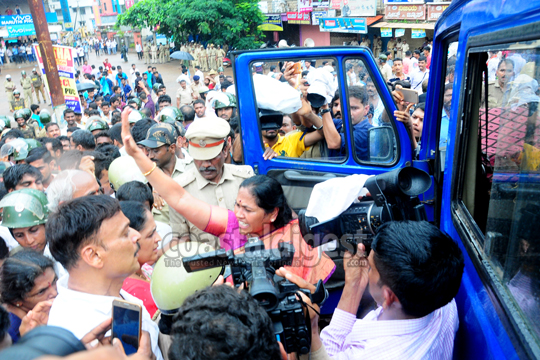


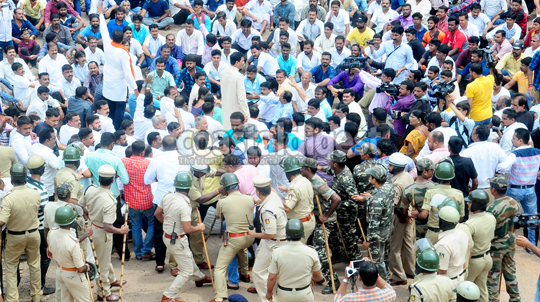

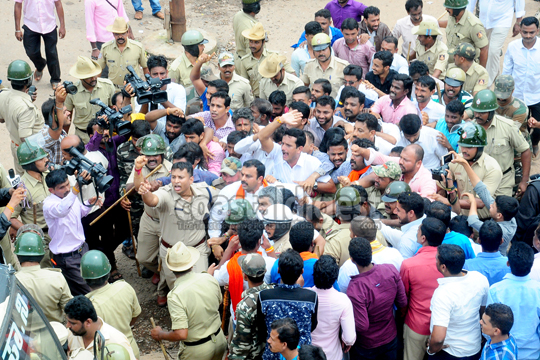
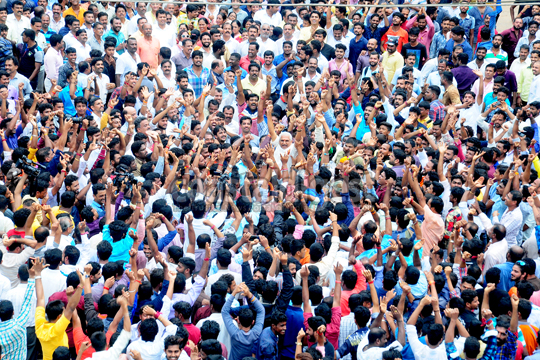
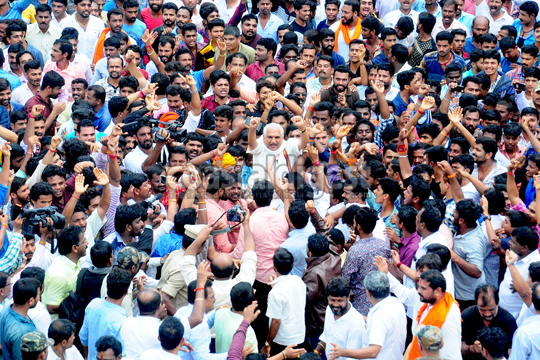
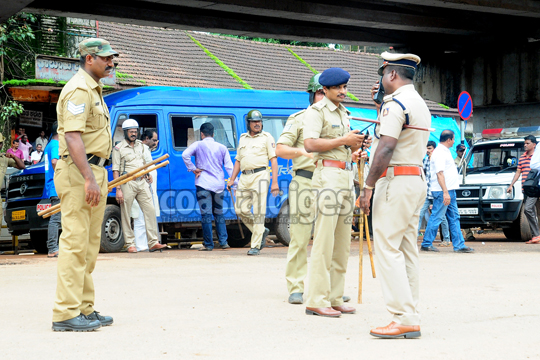
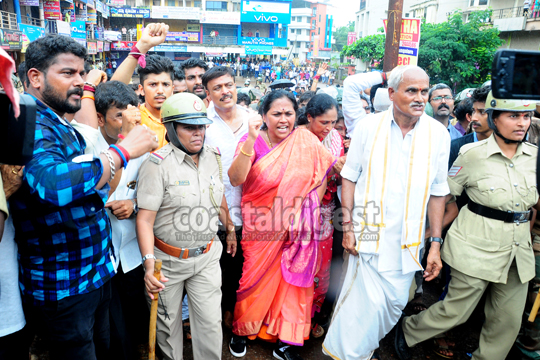
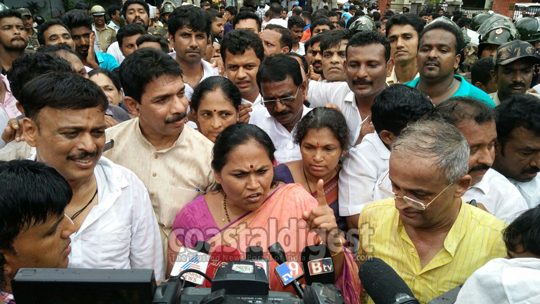
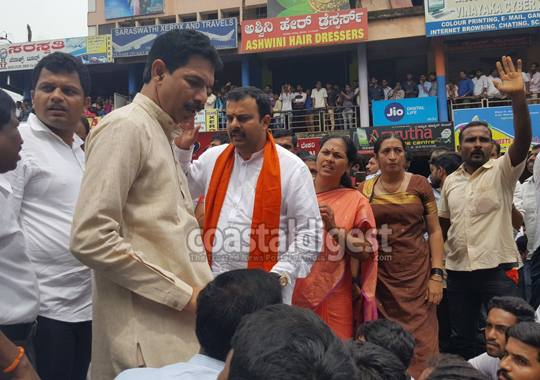
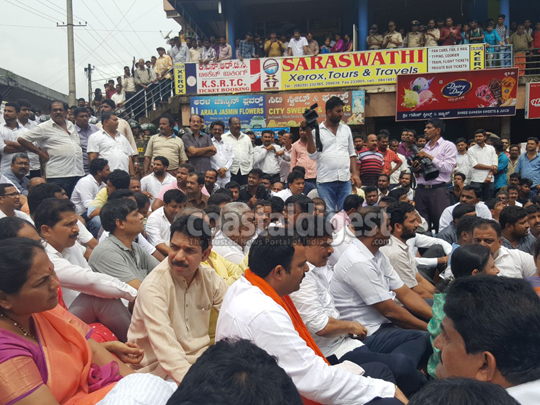
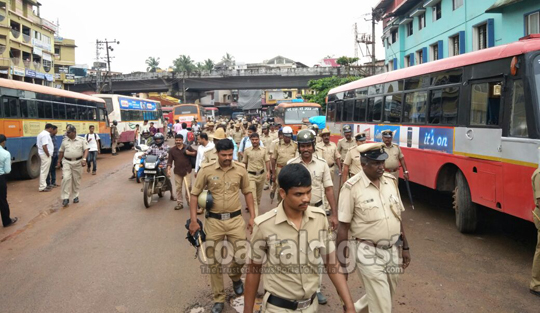
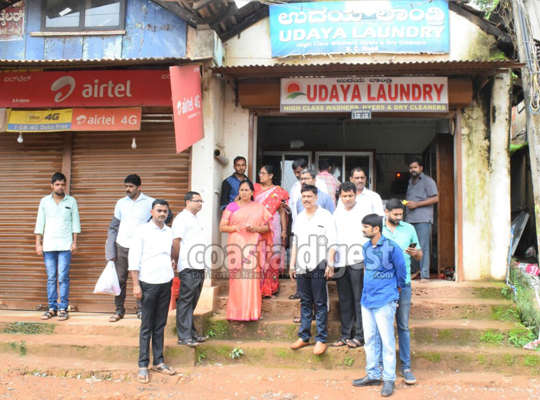
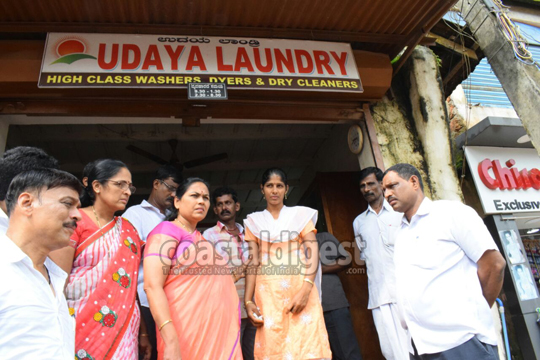
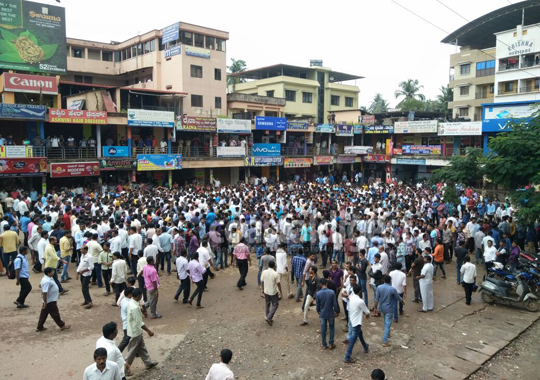
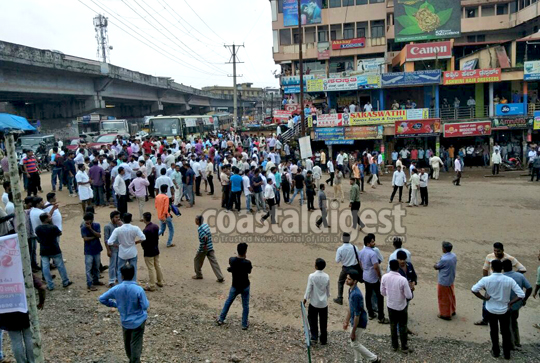
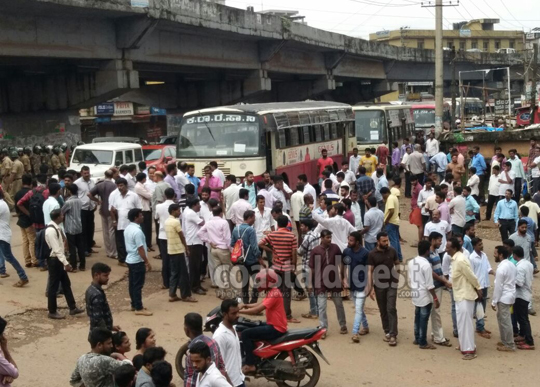
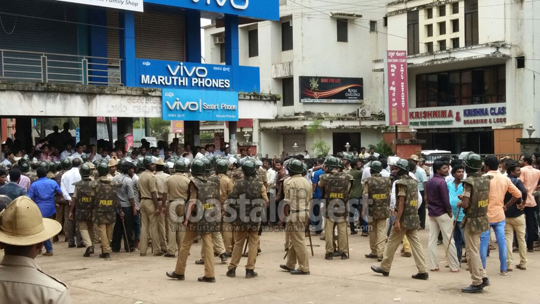
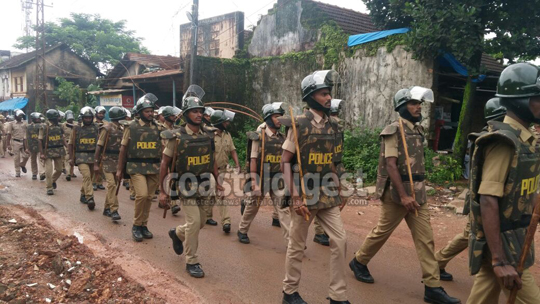
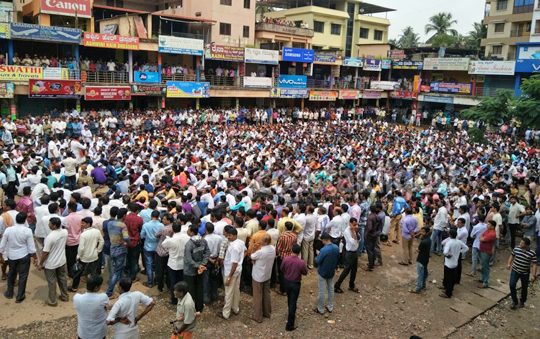


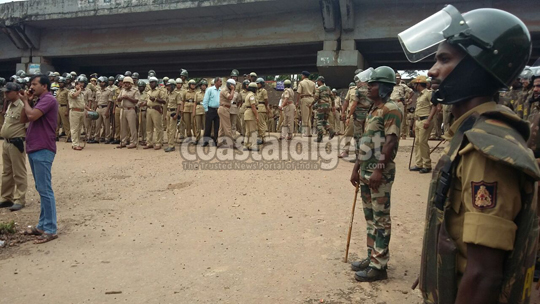
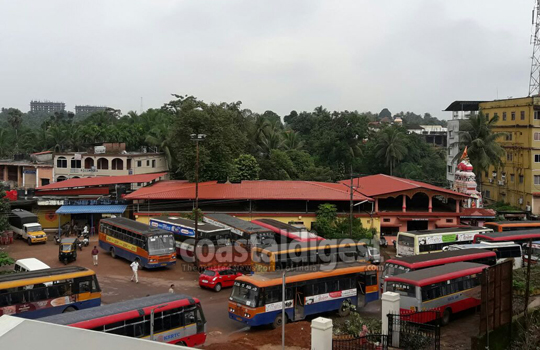
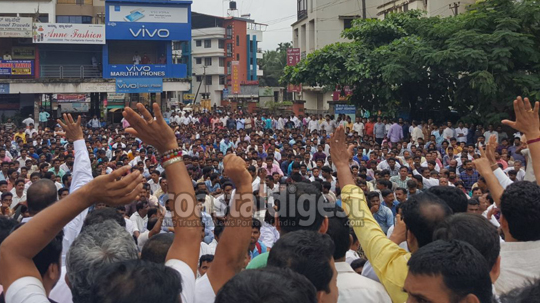
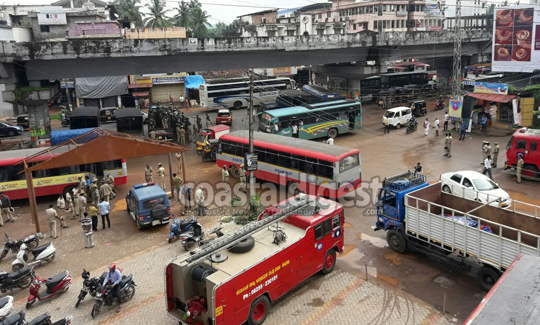
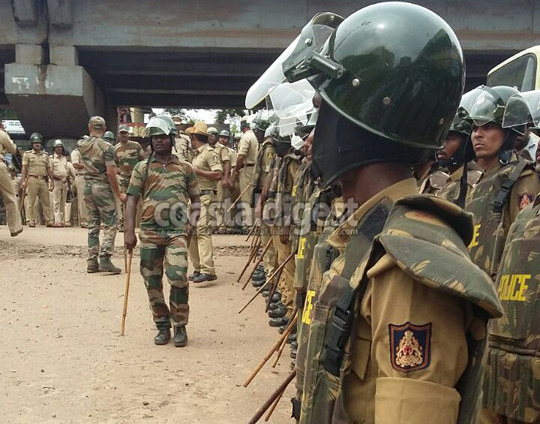
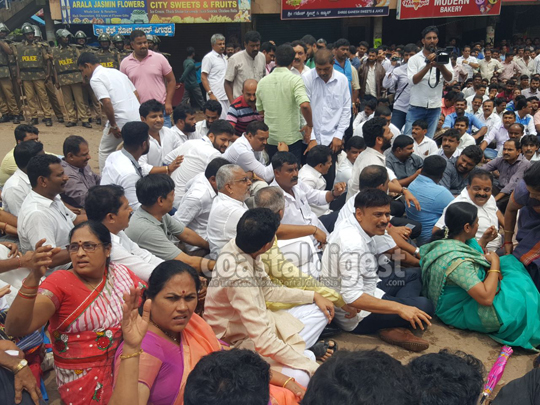

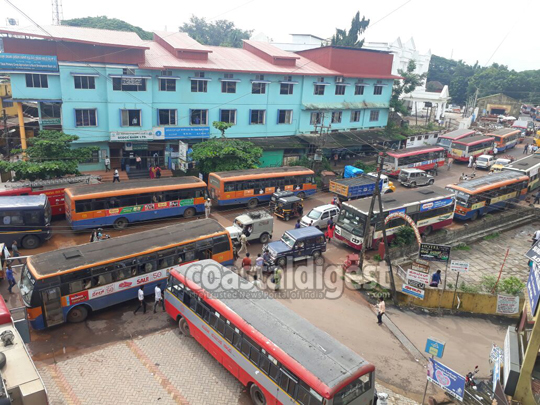
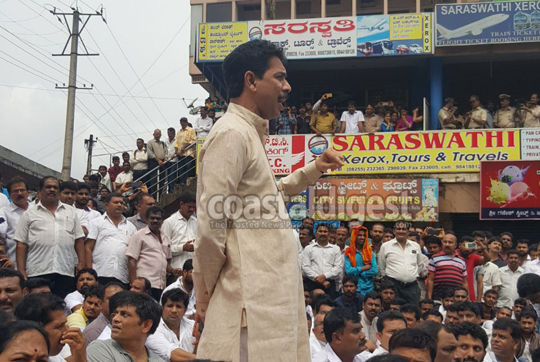
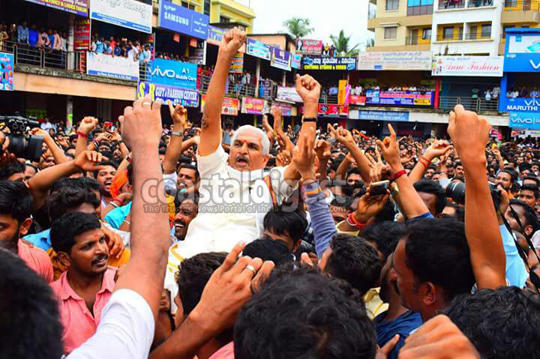











Comments
Police and congress Government are also equally responsible for that.
madam include Bajrang Dal also in your letter , they recently killed Ashraf , please keep in mind that you represents all people of you are constituency , not particular community or organization .
Looks like a slow U- turn from Seer due to pressure from RSS... lol
Lets wait & watch for more drama.
RSS turned DK into Godse's death chamber
Dear Shobhakka,
All murderers should be hanged till death..please include ashraf's murder also...jaleel's murderer...why biased always...yediiyurappa wife's murderer sa yaaranta gottu jagrathe...jai hind..jai mangalore
also congrss goverment becouse 144 section was there why give the permission for protest and his half murder celebrecetion on 7.7.17?
Ms Shoba yaddi, what about Sanga parivar?how many innocent musslims they kill? if ban RSS india will become peace.
Add new comment